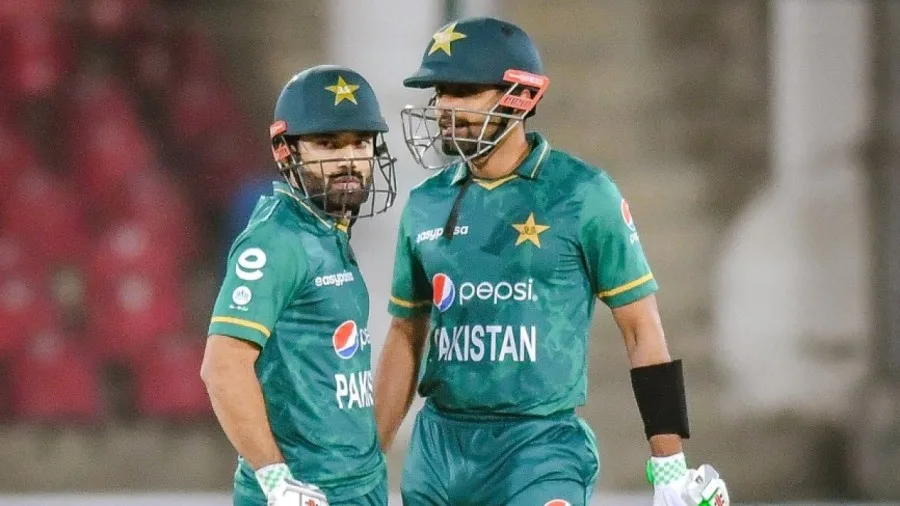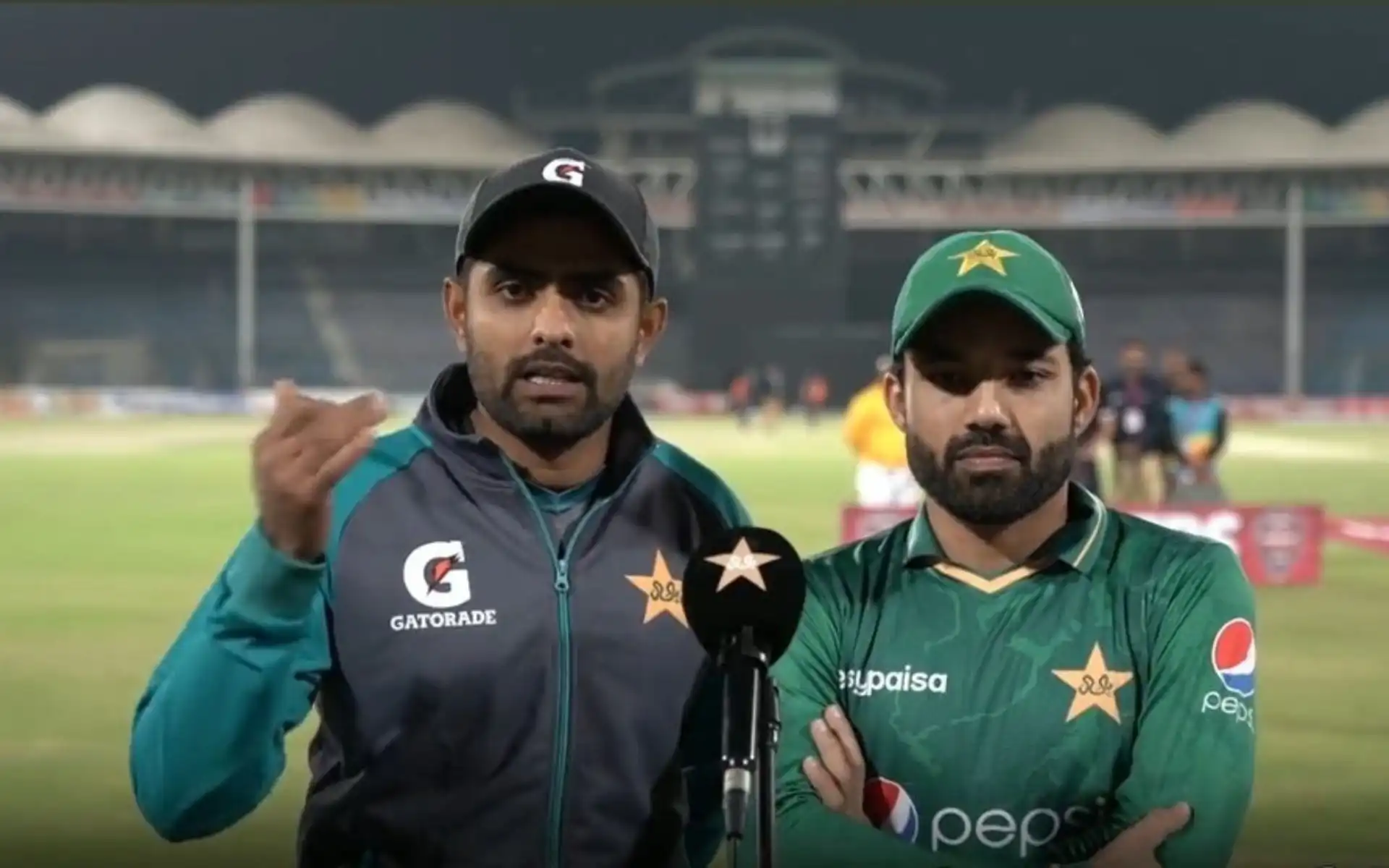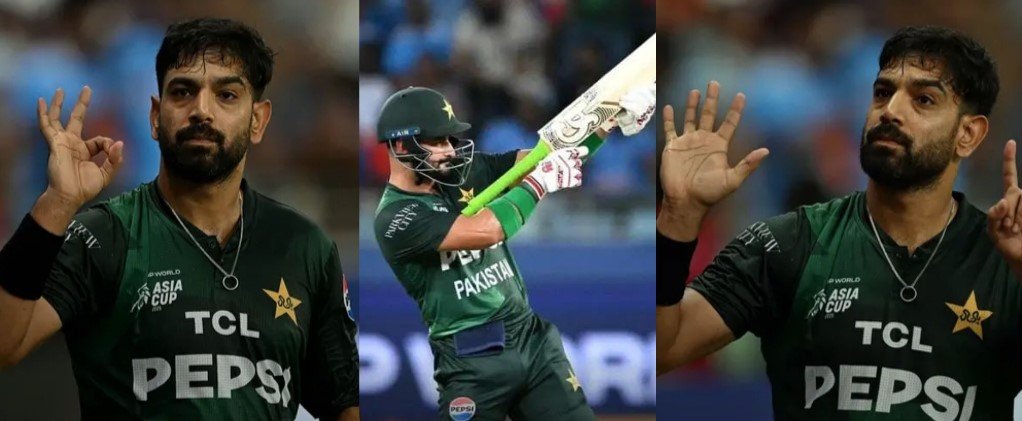The Pakistan Cricket Board (PCB) has announced its 17-man squad for the upcoming Asia Cup, and the decision has sent shockwaves through the cricketing world. Two of Pakistan’s most consistent performers in recent years, Babar, Rizwan Left Out as PCB Announces 17-Man Squad for Asia Cup. This move has stirred massive debate among fans, experts, and former players, with many questioning the logic behind excluding two of the team’s pillars. The Asia Cup, scheduled to be played in September, is seen as a crucial tournament, especially with the ICC Champions Trophy 2025 on the horizon. Pakistan’s selection, therefore, has drawn immense scrutiny both at home and abroad.
A Bold but Controversial Move
Babar Azam, Pakistan’s former captain and one of the most prolific batsmen in modern-day cricket, has been a mainstay of the national team across all formats. His exclusion is seen as nothing short of a gamble. Similarly, Mohammad Rizwan, Pakistan’s dependable wicketkeeper-batsman who has time and again anchored innings under pressure, has also been dropped. The PCB’s decision reflects a shift in strategy, possibly aimed at experimenting with new talent and reshaping the team ahead of future tournaments.
While the PCB has not provided an extensive explanation, sources suggest the decision stems from a desire to build a more aggressive batting unit and test young players in high-pressure tournaments. The selectors appear keen to look beyond the established names and invest in cricketers who can adapt to modern-day power-hitting demands.
Reactions from Fans and Analysts
Unsurprisingly, the news has divided opinions. Many fans expressed outrage on social media, labeling the decision as a “blunder” and “disrespect” to players who have carried Pakistan’s batting for years. Former cricketers have also weighed in, with some defending the selectors’ vision of planning for the long term, while others criticized the PCB for making unnecessary changes ahead of such an important tournament.
Analyst and former captain Ramiz Raja called the move “risky,” arguing that “Babar and Rizwan have proven themselves repeatedly in tough conditions, and dropping them could destabilize the batting order.” Meanwhile, others like Waqar Younis suggested it was time for Pakistan to test its bench strength and reduce overreliance on a couple of players.

New Faces and Surprising Inclusions
With the absence of Babar and Rizwan, the squad features some fresh names and surprising inclusions. Youngsters such as Saim Ayub and Sahibzada Farhan have been given the nod, signaling a push towards aggressive top-order batting. Wicketkeeping duties are expected to be shared between Mohammad Haris and Azam Khan, both known for their attacking style but lacking the consistency of Rizwan.
In the bowling department, the squad remains strong, with Shaheen Afridi, Naseem Shah, and Haris Rauf leading the pace attack. Shadab Khan retains his place as vice-captain and will be expected to contribute with both bat and ball. The selectors also included Usama Mir as a specialist leg-spinner, further strengthening Pakistan’s spin options. READ NEXT https://elevenpakistan.com/jui-leader-mufti-kifayatullah-shot-injured/
Implications for Team Balance
The absence of Babar and Rizwan raises questions about the stability of Pakistan’s batting lineup. Both players have been the backbone of the team, often shouldering responsibility when others failed. Babar’s ability to anchor innings and Rizwan’s consistency at the top have been central to Pakistan’s success in T20Is and ODIs. Replacing them with relatively inexperienced players may inject flair but risks exposing the team’s batting order under pressure.
However, supporters of the move argue that Pakistan has often been criticized for being overly reliant on Babar and Rizwan, which slowed down the scoring rate in T20 cricket. The selectors appear keen to shift towards a more fearless batting approach, where younger players can express themselves without depending on one or two anchors.
What This Means for Babar and Rizwan
For Babar Azam, this exclusion is particularly significant given his recent removal as captain across formats. It suggests the PCB is ready to move in a new direction, possibly phasing him out of leadership and central roles. While Babar’s form has been solid, critics argue that his strike rate in T20s has not always matched the demands of the modern game.
Mohammad Rizwan, on the other hand, has been Pakistan’s most reliable T20 batsman alongside Babar. His exclusion appears to be more about team strategy than form. Rizwan has consistently delivered, but with Pakistan seemingly keen on explosive openers, his more measured approach may have worked against him in selection discussions.x
Looking Ahead to the Asia Cup
The Asia Cup will test Pakistan’s new-look squad against some of the best teams in Asia, including India, Sri Lanka, and Bangladesh. It will be a litmus test for the youngsters selected in place of experienced campaigners. If the gamble pays off and Pakistan’s batting fires collectively, the PCB’s vision of building a fearless side will be validated. But if the team struggles without Babar and Rizwan, the backlash could be severe.
For fans, the tournament will be bittersweet. While they will rally behind the green shirts, the absence of their favorite stars is likely to dominate conversations. The Asia Cup is also a prelude to the Champions Trophy 2025 in Pakistan, which makes every decision leading up to it all the more crucial.
Conclusion
The exclusion of Babar Azam and Mohammad Rizwan from the Asia Cup squad marks a turning point in Pakistan cricket. It represents a bold gamble by the PCB—one that prioritizes future planning and aggressive cricket over proven consistency. The move has sparked controversy, but it has also opened doors for young players to make their mark. Whether this decision strengthens Pakistan or leaves them vulnerable will only be revealed once the Asia Cup begins.
One thing is certain: the debate surrounding Babar and Rizwan’s omission will continue to dominate headlines, making Pakistan’s Asia Cup campaign one of the most closely watched in recent history.
READ MORE



